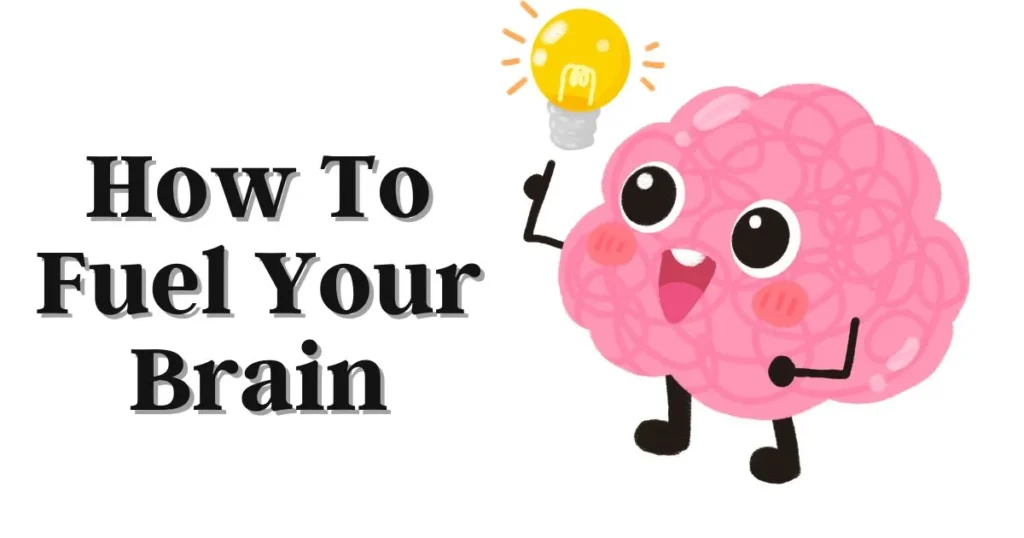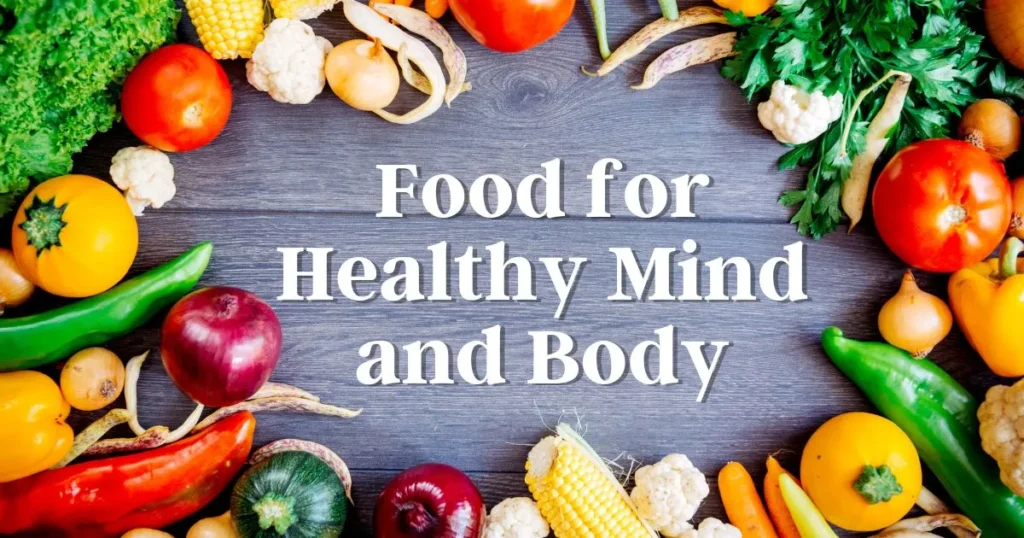Last updated on April 2nd, 2024 at 01:08 pm
It’s a no-brainer that keeping a balance between our mind and body is the key to living our best lives. But did you know that this balance hinges significantly on our nutrition? Yup, the food we eat plays a significant role in not just our physical health but our mental state as well.
Here’s a fun experiment – try eating nutritious food for several days and notice how your body responds. Do you feel more energetic? Focused, and Happier? That’s the magic of good food! On the other note, do you feel irritated and sluggish after a binge on junk food or sweets? Bottom line: what we eat has a direct link to how we feel.
Making a conscious decision on our nutritional choices does wonders for both our physical and mental health, and that’s exactly what we’re doing for our bodies and minds. It’s a simple yet powerful way to embrace self-improvement.
Fueling Your Brain for Peak Performance

For our brains to perform best, they require proper nutrition. Here are some of the ESSENTIAL NUTRIENTS your brain needs to function at its best.
Our brain’s source of energy is glucose. This simple sugar is critical for maintaining concentration and focus. Instead of consuming quick sugar fixes that lead to crashes, look for complex carbohydrates like brown rice or whole grains that will provide steady glucose levels, keeping you focused.
Omega-3 fatty acids are also great for improving cognitive health. These nutrients, which your body doesn’t produce on its own, help memory function and overall brain health. Regular intake of omega-3s from sources like seeds, nuts, and especially fatty fish such as salmon can support cognitive functions and maintain cellular health in the brain.
How Do Food Choices Impact Healthy Minds and Bodies?
Nutrition is not just about maintaining a healthy weight; it helps with our mental clarity, mood, and overall physical health. A diet rich in fruits, vegetables, whole grains, lean proteins, and healthy fats delivers the essential nutrients our bodies and minds need to function at their peak.
Read: Get Slim: 10 Powerful Ways To Lose Weight Without Exercise
Brain-Boosting Foods:
- Fish: Salmon, tuna, trout, mackerel, and sardines are packed with omega-3 fats, which are super important for a healthy brain. They help keep brain cells strong and improve how your brain works. Eating these often can help you remember better and keep your brain sharp as you get older. Doesn’t like fish? You can still get these brain benefits by taking fish oil supplements.
- Green Vegetables: Veggies like spinach, kale, broccoli, and other leafy greens are not just good for your body; they’re great for your brain too! They’re full of stuff called antioxidants, including Vitamin K, vitamin C, and beta-carotene. They help keep brain cells strong and improve how your brain works. Plus, these greens have folate, a super important vitamin that helps your brain make the chemicals it needs to think clearly and stay focused. So, don’t skip on your salad!
- Nuts: Almonds, walnuts, and pecans are packed with omega-3 fatty acids, antioxidants, and vitamin E. These nutrients safeguard brain cells, boost cerebral blood flow, and improve cognitive function. Munching on a handful of nuts can provide a revitalizing cognitive boost throughout the day.
- Dark Chocolate: Keep some dark chocolate handy because it’s full of good stuff like magnesium and antioxidants. Tip: Eating it in the morning can help you stay focused all day!
Upgrade your dinner with a Veggie Stir-Fry that’s good for both your brain and your taste buds. Cook up a mix of colorful veggies like spinach, kale, bell peppers, and broccoli in a tasty garlic and ginger sauce. Then, toss in your preferred protein – whether it’s tofu, chicken, or shrimp for a satisfying and wholesome meal that gives your brain a boost for top-notch performance.
Adding these brain-boosting foods to your daily meals is an easy yet great way to improve cognitive function and support overall brain health.
Foods You Should Avoid

Our dietary choices significantly impact both our physical health and mental well-being. Too much sugar, for instance, can trigger inflammation throughout our bodies. Aside from that, it causes our blood sugar levels to rise and fall rapidly, leaving us feeling tired and unable to concentrate. These blood sugar fluctuations can also contribute to mood swings and irritability.
Instead, choose fresh fruits, natural sweeteners, or desserts made with whole ingredients. Choose whole grains like quinoa and brown rice over refined carbohydrates to maintain stable energy levels and mood throughout the day. Add healthy fats from sources like avocados, nuts, seeds, and fatty fish to support cognitive function. Also, Proper hydration is needed for peak performance, so consider replacing sugary beverages with water or infusing water with fruits and herbs.
How To Build A Balanced Lifestyle
Taking a holistic approach to health and well-being means nurturing every aspect of our lives for optimal vitality and happiness.
Here are some of the few tips on building a balanced and healthy lifestyle:
- Exercise is not only beneficial for the body but also for the mind. It releases chemicals that make us feel happy and help improve mood regulation and cognitive function.
- Quality sleep is essential for the mental health of the brain to process emotions and clear toxins. Chronic sleep deprivation can lead to mood disturbances and impaired cognitive function.
- Stress management techniques like meditation and deep breathing can help reduce feelings of anxiety and depression, promoting emotional well-being and mental clarity.
- Social connections – Provides emotional support and reduces stress. Feeling connected to others triggers the release of hormones that promote bonding and relaxation.
Real People, Real Results: Success Stories
Campbell has lived with bipolar disorder from a young age. The burden grew heavier after losing family members to suicide and struggling with medication side effects like weight gain.
Looking for a change, Campbell tried the ketogenic diet, aiming to manage his weight by reducing carbs and increasing fats and proteins. This led his body into ketosis, a state where it burns fat for energy, creating ketones.
This shift not only helped his weight but also brought significant improvements to his mental health.
Read the full story here.
Conclusion:
Getting the right nutritional advice is key and having personalized guidance is crucial. You can get help from registered dietitians (RDs) or health professionals who understand your specific health needs. They can customize their advice based on your health conditions and aim for your overall well-being, considering both your physical and mental health.
Nowadays, it’s easy to connect with RDs online, making it convenient to get personalized advice from anywhere. Telehealth services remove the trouble of location, allowing you to consult with experts no matter where you are.
For those who prefer meeting in person, there are tools to help find local professionals for face-to-face advice.
Subscribe to our website for a weekly dose of health tips straight to your inbox! Visit Smiat Blogs for more articles that help you take care of your mind and body.

